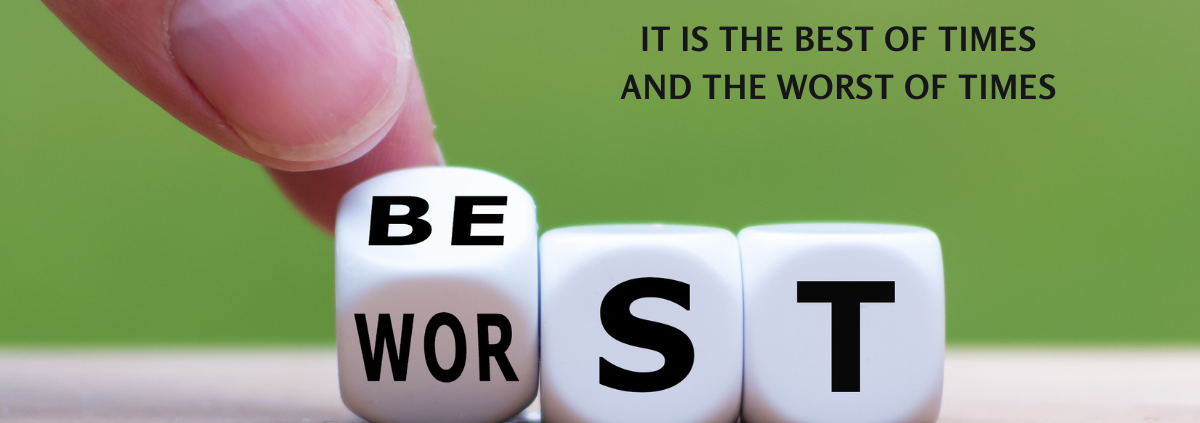When Charles Dickens penned his most famous work, A Tale of Two Cities, way back in 1859, writing “it was the best of times, it was the worst of times”, who knew that parallels would be drawn more than a century later?
Just look at the world around us — it really is the age of radical opposites taking place at the same time. On one hand, the world is collectively surging forward, with innovations in the field of science, communications, medicine, and so forth, improving the life of humankind as a collective, and, on the other, destructive forces are tearing down the very fabric of humanity.
The best of times
It is said adversity brings out the best in us. The COVID-19 pandemic proved that this is indeed the case. When the coronavirus started its march, it was as if the end of the world was near. But then, in very little time, scientists came up with vaccines, which have proved to be life-saving. The vaccines are based on messenger RNA, a technology that has been in the works for 20 years. What the pandemic did was fast-forward research into, and application of, this technology.
Then there are advancements in Artificial Intelligence and Machine Learning (AI/ML). Just a few decades ago, who would have thought a day would come when we would have AI-powered assistants like Siri and Alexa doing our bidding? As of now, AI with computer vision or audio recognition can sense things, but cannot ‘talk’ about what it sees and hears using natural-language algorithms. Scientists are now trying to combine these abilities in a single AI system in an attempt to impart human-like intelligence to robots. Just think of the possibilities that this can unfold and its implications for our lives.
Also noteworthy are the advancements in mobility. The emergence of electric vehicles (EVs) and their large-scale adoption could play a major role in combating global pollution. As of now, EVs are expensive and accompany range anxiety. But with lithium-metal batteries in development, we could soon boost the range by 80% and charge faster. These are just a few examples of emerging innovations and progressive transitions in the world. Making the most of these developments will require greater knowledge flows, resource sharing, and collaborations between globalized nations. This is perhaps why the current geopolitical situation is a cause for concern.
The worst of times
It is truly baffling that, in this day and age, deliberate destruction can be unleashed on vulnerable nations. The Russia-Ukraine war has stupefied the world — the suffering inflicted on civilian populations is unwarranted and unacceptable. There is also the evolving Syrian refugee crisis, which has displaced millions, the ceaseless fighting at the Gaza strip, and the ongoing Sri Lankan civil unrest — all undoing the socio-economic progress achieved over the years.
In this age of globalization, inter-connectivity and inter-dependence, any tragic occurrence in any part of the world impacts all of us, directly or indirectly. If the human race is to march ahead as one, it will need to put a united front against its existential challenges such as global warming, food and water scarcity, pollution, poverty, etc. If the pandemic was any lesson, we are stronger when we work together. If it’s any consolation, Charles Dickens also said, in his David Copperfield (1850), “I hope that real love and truth are stronger in the end than any evil or misfortune in the world.” This is definitely something to ponder today.



